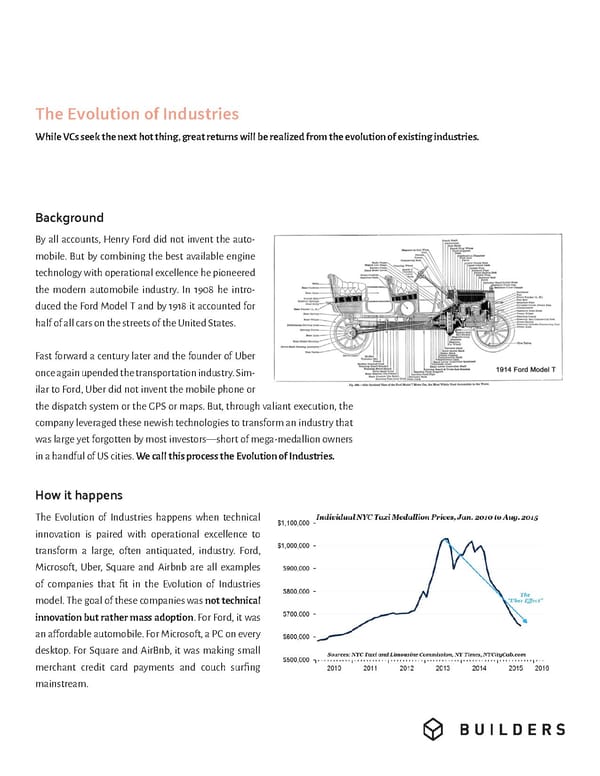The Evolution of Industries While VCs seek the next hot thing, great returns will be realized from the evolution of existing industries. Background By all accounts, Henry Ford did not invent the auto- mobile. But by combining the best available engine technology with operational excellence he pioneered the modern automobile industry. In 1908 he intro- duced the Ford Model T and by 1918 it accounted for half of all cars on the streets of the United States. Fast forward a century later and the founder of Uber once again upended the transportation industry. Sim- ilar to Ford, Uber did not invent the mobile phone or the dispatch system or the GPS or maps. But, through valiant execution, the company leveraged these newish technologies to transform an industry that was large yet forgotten by most investors—short of mega-medallion owners in a handful of US cities. We call this process the Evolution of Industries. How it happens The Evolution of Industries happens when technical innovation is paired with operational excellence to transform a large, often antiquated, industry. Ford, Microsoft, Uber, Square and Airbnb are all examples of companies that fit in the Evolution of Industries model. The goal of these companies was not technical innovation but rather mass adoption. For Ford, it was an affordable automobile. For Microsoft, a PC on every desktop. For Square and AirBnb, it was making small merchant credit card payments and couch surfing mainstream.
 The Evolution Of Industries Page 1 Page 3
The Evolution Of Industries Page 1 Page 3